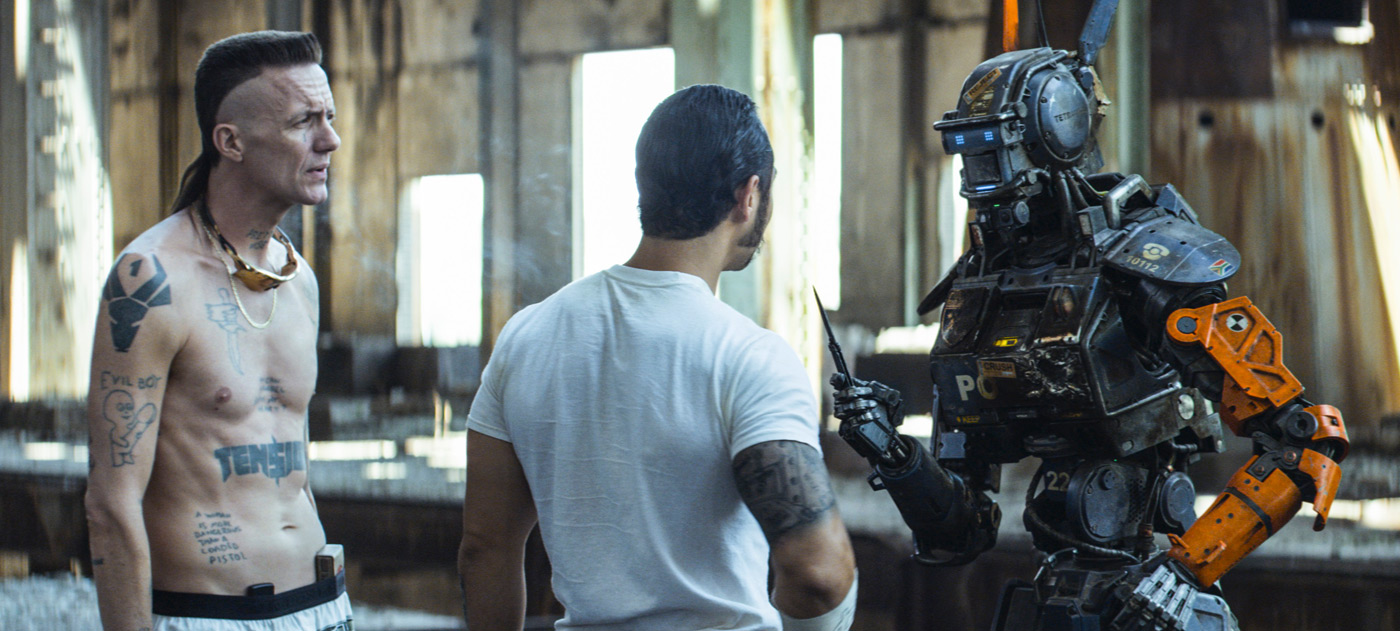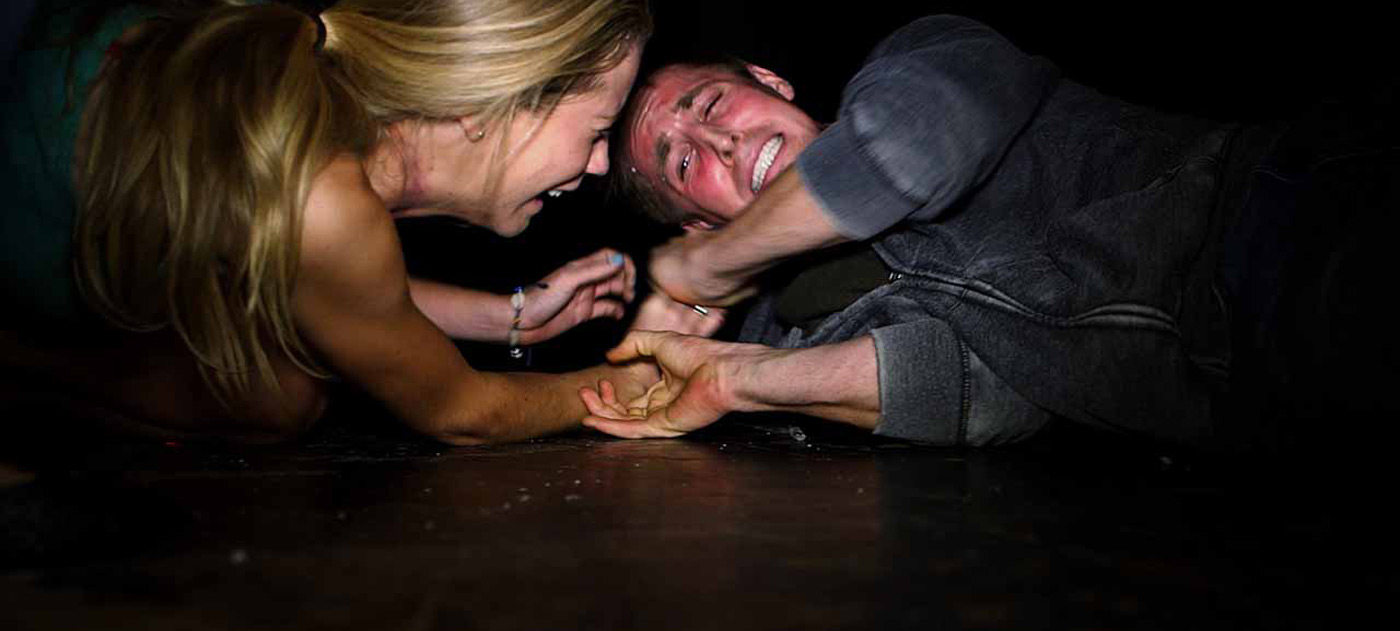When it comes to judging the merits of a road trip movie — and there are so many of these that it’s basically a legitimate sub-genre of cinema by this point — the most logical way to proceed is on a scale of Crossroads (dismal failure) to National Lampoon’s Vacation (all-time classic). I’m very happy to tell you that Magic Mike XXL, this summer’s installment of the genre, is closer to the top end of the scale. If, at this point, you’re saying, “Wait. Magic Mike is a road trip movie?” — yes, it is. But that’s the least of the film’s many surprises. Not only is the film an absolute delight, it’s also a significant improvement over its predecessor.
Picking up three years after the events of the previous film, Magic Mike XXL opens on Channing Tatum’s Mike at home in Florida, retired from dancing and struggling to maintain his small carpentry business — though it’s clear that he misses performing. After a phone call leads him to believe that an old acquaintance has died, Mike goes to what he thinks will be a wake, where he is reunited with the boys from his stripping days, and they convince him to tag along as they head up to a male-stripper convention in Myrtle Beach for one last performance. From there, the film becomes a quasi-episodic road trip narrative as the boys encounter one mishap or adventure after another as they make their way north towards the convention.
Joining Tatum in this sequel are returning players Joe Manganiello, Matt Bomer, Adam Rodriguez, Kevin Nash, and Gabriel Iglesias (but not recent Academy Award winner Matthew McConaughey or Alex Pettyfer), all of whom seem genuinely thrilled to be part of this film. Indeed, there’s a palpable sense of love and camaraderie between these characters that one doesn’t often see in a Hollywood comedy starring a group of (mostly) straight men. I don’t even remember the last time a film featured so much homosocial bonding and physical affection between men without resorting to gay-panic jokes (male homosexuality is never once mentioned or implied), and that’s admirable as far as I’m concerned — though I do concede that, unlike most R-rated comedies, this film is definitively not targeted towards suburban dudebros.
Steven Soderbergh, who directed the first film, hands over the reins this time to Gregory Jacobs, who has served as his producer and first AD for years — though the former does return as both director of photography and editor, under his usual pseudonyms. Jacobs does a perfectly fine job directing only his third film (and first in eight years), though he lacks any definable auteurial aesthetic. The film, as good as it is, looks like anyone could have directed it.
The acting, meanwhile, is the real strength of this film (if we’re not counting the bare muscular bodies on display). Tatum continues to prove that he’s a really great actor, and his unexpected rise to being one of our most exciting movie stars is one of my favourite developments of the past few years. Just over three years ago, no one thought much of him as an actor at all, and now he’s giving fantastic performances all the time. He has also become very good at doing a lot with a little; at one point, he introduces himself to another character, and his performance of the single line had me laughing out loud. The rest of the male cast are given much less to do, but they each have a moment or two to stand out. Manganiello, in particular, has an incredible scene set in a Mini-Mart that is easily the best and funniest scene of the year so far. It’s just a perfect combination of writing and performance and soundtrack, elevated even further by the superb wordless reaction acting of Lindsay Moser as the Mini-Mart cashier. Of the quartet of new female characters this sequel introduces, the juiciest role belongs to Jada Pinkett Smith, who plays Rome, a veteran male-stripper hostess. Pinkett Smith is sexy and confident and slightly intimidating — it just might be the strongest work she’s ever done. But the real revelation of the film is a never-better Andie MacDowell, who is utterly radiant as Nancy, an aging Southern belle who yearns to be loved and desired one more time before it’s too late. MacDowell is really only in one extended scene (part of one stop the boys make on their road trip north), and it’s hardly more than a cameo performance, but she absolutely nails Nancy’s intelligence and sexiness and playfulness and sadness. She manages to create a complete human being in one scene, and I wish there could have been more of her.
For a frothy road trip movie, there is a decidedly melancholic tone running through Magic Mike XXL. This is a film that has more on its mind than your typical summer fluff. Much is made in the film of this convention in Myrtle Beach being a last hurrah for the boys, and there is an uneasy uncertainty about what comes next. Returning screenwriter Reid Carolin is fascinated by this question of what happens when a stripper ages out of the profession. Characters at various points mention unexplored passions or unfulfilled ambitions, and there is a feeling that the future might be terrifying. For someone who has spent his entire adult life stripping, what if it turns out that he has no other skills? Is it possible to reinvent yourself when you’re close to 40? This film remains at its core a “male stripper movie”, so it ultimately spends its final act indulging in extravagant semi-nude performances instead of developing these themes further, or providing any resolution at all to the conflicts they pose.
Oddly, there is far less nudity in this film than you’d expect. Aside from a very quick glance at Manganiello’s bum early in the film, there really isn’t any nudity at all until the last-act performance at the convention — and even then, don’t look down at your popcorn too long or you’ll miss it. It’s not that I demand there be nudity in the films I watch; it’s that this is a male stripper movie with almost no nudity, and that’s kind of weird. The film is in many ways about fantasy fulfillment, and you can bet that, if it had been about female strippers, all the stars would have been topless, along with dozens of anonymous topless extras in the background. Is the film trying too hard not to alienate straight men? If so, that’s a strange goal, since the primary ticket buyers will inevitably be women and gay men.
Despite any flaws the film may be accused of having — the interesting thematic elements that are never quite developed enough then completely dropped, the episodic structure that prevents the film from having any real narrative momentum — it remains a terrifically fun, funny, and visually pleasing (ahem) film.










Fantastic Four
Fantastic Four